Fatal Friends, Deadly Neighbors Read online
Page 18
Williams had requested that Forensic Evidence Technician John Farrell take photographs, both during the dead woman’s postmortem exam and at the death site.
The list of evidence items and photos grew longer and longer.
Becky’s finger and hand prints were expected to be in her room. Denys Williams hoped to isolate those prints. That would allow her to identify any other prints that were not expected to show up in the dead woman’s office/bedroom.
Since Adam Shacknai was the only other person staying in his brother’s estate on Tuesday night, his room in the guesthouse was also photographed and searched for any possible evidence.
And so was the master bedroom that Rebecca had reportedly shared with Jonah. It was much more lushly furnished than the small room with the balcony. In this master bedroom, small-sized women’s clothing—a pair of blue jeans, a white undershirt, and a black, long-sleeved top—were folded neatly on the bed.
Williams bagged and labeled the clothing. She also removed a clump of black hair that clung to the wall of the shower in the en suite master bathroom, and collected samples from trickles of red fluid on the shower floor.
Moving to the guesthouse, Williams took men’s clothing from the floor of the south master bedroom there: blue jeans, boxer briefs, a black T-shirt, and black socks. She found and saved for evidence a long strand of dark hair in the bathroom attached to this bedroom.
The evidence tech worked steadily, saving and marking anything that might prove to be of vital evidentiary value: tissue with red stains from a child’s bedroom, a candle from the grass north of where Becky had lain, a bottle of water from the north master bedroom of the guesthouse where Adam spent the previous night, two red plastic cups from the same room, and, curiously, a pair of women’s panties that were pink, purple, and white, found in a wastebasket there.
What would prove to be important and what was only mundane and expected to be where it was found? The pink bedding in the master bedroom Rebecca had shared with Jonah? The knives—one on the brick walkway near where the body lay and others from the floor of the bedroom with the balcony? The Samsung cell phone with a dead battery just outside that room? The two paintbrushes there—one with black paint on its bristles, another with green paint?
The white door to that room, with the cryptic question scrawled in black paint, was removed from its hinges and moved carefully to the crime lab.
The San Diego detectives and criminalists gathered masses of evidence, but it would be a herculean task to adequately search every corner of the Spreckels Mansion, and, unfortunately, they didn’t. Nor was every item they had gathered tested in the crime lab.
Chapter Nine
San Diego County sheriff’s investigators had a massive probe ahead of them. Not only would they have to match what physical evidence they had to a suicide or to an as-yet-unknown killer, but they needed to explore the complicated personal relationship between Jonah Shacknai and Becky Zahau. They also had to expand their search to include both Jonah’s and Becky’s families and others whose lives interacted with theirs.
Jonah was spending most of his time at Max’s bedside, hoping against hope that his small son would defy the odds and waken from the deliberately induced drug coma that might help him heal. Jonah was as cooperative with detectives as he could be. Rebecca’s relatives were grieving deeply and preparing to bury their beloved daughter and sister, while they questioned how she had died. They knew she had been found hanging, but they simply could not reconcile the Becky they knew with someone who could commit suicide.
Becky Zahau’s religious beliefs were strong, and she was a woman full of life and hope for her future. In her last conversations with her sisters Mary and Zaré, there had been no hint that she was considering such a thing. As sad as she was about Max’s terrible accident and Jonah’s grief, she had reacted as she always did, putting her own needs aside and trying to help her lover, his family, even his former wife Dina, as much as she could.
Sometimes, however, Rebecca had to face the problems that most women have when in love with a man who has prior wives and children. It’s natural for loving fathers who share custody to want to spend time with children who come from a broken home. They also tend to spoil them—perhaps feeling guilty about their divorces. Jonah Shacknai had his two children from his first marriage to Kim, and Max from his marriage to Dina, and he tried to arrange his time so that none of them felt left out.
Becky adored Max and he felt the same way about her, but his older children kept their distance. In trying to juggle her relationships with Jonah and his teenage children, Rebecca found her life was not without problems.
One of the thorns in her side that hurt her the most was the way Jonah’s daughter, Cameron, seemed to resent her. That was hardly unusual. A teenage girl almost always resents a new woman in her father’s life, and Cameron didn’t like this woman who wasn’t even her stepmother.
Becky was crushed again and again by Cameron’s disdain for her. Several months before her death, Becky wrote a letter in her journal to Jonah, a letter she never intended to send. She was trying to deal with her feelings. Becky may even have been “practicing” for a time when she could be totally open with Jonah.
She had initially declined to attend a dinner with Jonah and his children after she was humiliated at a similar function just two days earlier. Jonah had been impatient with her about her timidity.
“My decision to not attend dinner should never be seen as ‘losing,’ ” she wrote. “Cameron and I are not in a war that will end up with winning or losing.
“If roles were reversed I would have dealt with it on my own without the need to even mention it to you, let alone place you in such a situation. You did not consider to ask me or understand how uncomfortable I would be. However, the requests that pile on me to basically get out of Cameron’s way because my presence makes her uncomfortable have been a non-issue. Now, I have to consider your situation and how unfair it would be to put you in an awkward situation if I did not attend. Once again, I place my feelings and hurt on the shelf for those of yours and your family’s.
“I am hurt by your comment that if I did not attend, you will take it as ‘an interesting signal,’ as if none of my other actions have not been interesting enough to show I care, that I love you, that I have tried with everything I know to be open and available to your kids.
“So, yes, I will be present at dinner. I am sure Cameron will put on her best behavior.”
Rebecca loved Jonah a great deal, but there were many times when she wanted more from him than he was prepared to give, an emotional tug-of-war that occurs in most complicated romances. In her secret journal, she wrote a poetic essay on her feelings.
“There is a fire within my heart that rages with such burning desire . . . to be looked upon with eyes [so] full of love that I would be lost in them like a seaman in the vast ocean . . . to have my face cupped in loving hands as if they were cradling a fragile egg, lest it would crack under the slightest pressure . . . to have my hands held in two loving hands as I am told how much I am loved . . . that things are going to be o.k. . . . to know that I’m always number 1 no matter what may be . . . to be held like a piece of art, a rarity . . . someone so special . . . alas . . . these will never come true as long as I’m with him. Is this my curse for leaving Evan? That I have finally found someone that I love more than they love me so I would finally feel the pain of constantly giving more than what I thought I ever could, then hoping the same in return . . . in vain? I know he loves me and believe he is as emotionally involved as he knows best, but sometimes it is not enough for me. Is that why I feel this incredible emptiness?
“Am I just too much of a coward to face the truth that I’m settling for the hope of a few happy years??? Which may never even come?? Am I pretending that I will be content without ever having a child???? Am I sacrificing my true happiness because of momentary comfort??? It seems like I have the perfect life to my friends and those who watch from the outs
ide—living in a mansion, a car that was paid for, no job, access to credit cards—so why does it not seem that way?”
Rebecca hastened to write that money was never a consideration for her. “If it had been, I would have bid farewell by now.” She wrote of being harassed and hated by “2 ex-wives” and of her loneliness at being essentially cut off from her family, and of having no one to talk to.
“My reward must be his love, whatever the dose may be, remembering the rare sweet times that we get to share, remembering that he is indeed a good man at heart, and things that he does [or rather, doesn’t] do, he does with ignorance. If only he knew I deeply I care for him, and how much I have sacrificed for our relationship . . . and how much I hold in so he does not need to be bothered.”
Becky finished the long journal entry by pledging to do what she could to help Jonah “in pursuit of our happy life.” She prayed to God for guidance in being the “best girlfriend” and the “best caretaker” of Jonah’s three children. She wrote that she had no idea when she and Jonah would be engaged, “let alone get married.”
Still, even though Rebecca Zahau was having a difficult time on that day so many months before she died, she was not about to give up. She was usually content with the role she played in Jonah Shacknai’s life, and hopeful that, in time, they would marry and be together forever.
Her journal entries could be very dramatic. It’s likely she never intended for anyone else to read them. She felt guilt over divorcing her ex-husband, even though theirs was basically an arranged marriage. She had gone back to him a number of times because she did feel guilty. Some members of her family had wanted her to make her first and only marriage work—but she didn’t love him; she wondered if she had ever loved him.
* * *
While Rebecca’s family made arrangements with the Meierhoffer Funeral Home in St. Joseph, Missouri, for her memorial service and burial, Jonah Shacknai spent his time at Max’s bedside. Max had never awakened from the medically induced coma that had seemed his only chance to recover. His doctors shook their heads sadly as his mother and father asked for some sign of improvement. In truth, Maxie was brain dead, and probably had been since shortly after he fell. It was finally evident that the little boy was drifting away more each day. On Friday, July 15, 2011, Max Shacknai died.
On July 17, Jonah released a statement to the media.
“With great sadness,” he wrote, “Dina and I convey the tragic passing of our beloved son, Max. Despite heroic efforts on the part of the paramedics and hospital staff, he was unable to recover from the injuries that he suffered last week.”
In the space of only five days, the idyllic life on Ocean Boulevard had come crashing down. And it seemed almost impossible to adequately explain either Max’s or Becky’s violent deaths.
KZ, the medical expert, examined Max’s autopsy report carefully and posted once more to “The Hinky Meter.” The autopsy report said that Max’s death had probably been caused by the hyperextension of his spinal cord during his plunge from an upper floor of the mansion. It had been so severe that his spine was virtually “unplugged” from his brain stem. There would have been no way for ER physicians to save Max at that point; his spinal cord was “shredded.”
Why hadn’t the doctors treating Max told Jonah and Dina the truth from the beginning? For all intents and purposes, Max died at the bottom of the stairs. Being brutally candid is difficult for physicians; they try not to destroy all hope.
And so the six-year-old’s parents had held on to the slim possibility that he might recover for at least two more days. Neither of them was a novice in their medically connected fields; somehow they must have known that there was no way for Maxie to come back.
Maxie’s vital organs were donated to children who desperately needed them. All but his heart; it was too badly damaged from a half hour without respiration or pulse.
Everywhere those who loved Max and Becky looked, there was death and despair.
Max was buried in Arizona. Jonah paid for all the costs of Rebecca’s funeral, and he flew back to Missouri to attend it, bringing with him two men who may have been bodyguards or simply business associates.
Soon he put the Spreckels Mansion on the market. The property held nothing but heartbreaking memories now.
* * *
The public—first in Southern California and the Phoenix, Arizona, area—was anxious to know what had really happened. Within twenty-four hours of Becky’s death, the news about the mystery of the two deaths in Coronado spread across America and overseas. The way it had played out was so incredibly bizarre.
The law enforcement agencies involved were as baffled as laymen, and they were playing their cards very close to their vests. The results of Becky’s autopsy were sealed, and they would not name any suspects, saying only that they had talked to many people, whom they referred to only as “witnesses.”
Actually, they had no true witnesses to either Max’s fall or Becky’s hanging. Or, rather, they had no one who would admit that they personally saw either event. Adam Shacknai was the closest thing to a witness and he continued to insist that he had cut Becky’s body down. He was allowed to leave California to return home to Memphis. If San Diego investigators had more questions for him, they knew where to find him.
Back in Missouri, the Zahau family was at a loss, grieving for Becky, wondering what could have happened. They had little money to hire attorneys or private investigators, but beginning with Mary Loehner—who probably knew Becky better than anyone—the Zahau family demanded answers.
Mary was the most outspoken. She gave an interview to the Phoenix New Times on July 21, 2011: “Obviously the investigation is not complete yet, but as far as I know about my sister, my sister did not commit a suicide,” Mary said vehemently. “My sister was not depressed, my sister was not frantic, my sister was planning on calling my parents the next day.”
Mary Loehner would never change her mind about that, nor would the rest of Becky’s family.
The San Diego County sheriff’s detectives widened their probe. Now they picked up the threads of Becky Zahau’s life before she fell in love with Jonah Shacknai, hoping they might find a key to the mystery behind two deaths.
Chapter Ten
I have always been interested in following the paths of lovers who had only a minuscule chance of ever meeting. And yet some of the great romances of all times have begun by unbelievable synchronicity. Jonah Shacknai and Rebecca Zahau had that. But, before Jonah, there was Evan. Evan Solanev, Becky’s ex-husband.
Rebecca was attending the Calvary Bible College in Germany when she signed up for her church’s “Summer Service,” a religious outreach program. Her assignment was to go to Austria in the summer of 2001. She was twenty-two years old then and quite naïve, having been sheltered by her strict parents and loving siblings.
While in Austria she met a young man named Evan Solanev; he had come from America to attend the program. They didn’t spend much time together, since Evan left for Kosovo shortly after they met. His avid courtship consisted only of a flurry of emails over the next four months.
Evan quickly idolized Becky, describing her as “this Burmese princess—sincere, sweet, God loving girl. This was one of the most beautiful girls I’d ever met!”
Solanev was twenty-five, three years older than Becky, and he seemed set on marrying her. “We were friends at first,” he recalled. “But then we did email and we fell in love that way.”
He proposed to her in October 2001. It appears that their parents approved of the match. Evan went to Germany to ask her father for permission to marry her. He took his mother to meet her family at Christmastime that same year.
In the meantime, Becky stayed in Austria. She had no citizenship rights at all yet in America. Evan returned to the United States and got a job in security on Long Island.
After immigrating to America, several members of the Zahau family had settled near St. Joseph, Missouri. Becky’s older sister, Mary, stayed in Missour
i and married a police officer on the St. Joseph force. Her sister Snowem married her husband, David,* and they chose to live in Germany.
Becky’s other two siblings were much younger than she was. Besides Zaré, she had a younger brother, James.* Mary and her husband, Doug, were raising the two younger children since her father was quite elderly and her mother middle-aged when they were born.
At Evan Solanev’s urging, Becky came to America in April 2002, and she married him very soon after. She felt sometimes that she had been caught up in a whirlwind without time to ponder whether she really wanted to be Evan’s bride. Evan explained that there were pragmatic reasons for the rush.
“We had to be married by May 1 because Becky only had a temporary permit to be in America,” he explained.
Was she rushed into marriage? Probably. She had known Evan for about nine months but had spent precious little actual time with him. Most of their communication had continued to be through email. Still, Becky wanted to make their marriage work.
They both remained heavily involved with their church, and they left New York on May 6, headed for Temecula, California, a baking hot desert town. Evan was to be the youth pastor at the Calvary Chapel Bible College in nearby Murrieta. They were soon working hard to help build the congregation, and especially in overseeing youth groups.
The church was mission focused, and, according to Evan, they had high hopes.
But there were roadblocks that quashed much of their enthusiasm. Apparently the main pastor at the Murrieta church and Evan didn’t see eye to eye. Evan resigned and he and Becky moved to Portland, Oregon, where his brother, an agent in the Drug Enforcement Administration, lived.
“We always thought we could start over,” Evan said to detectives who interviewed him years later. They noted that he spoke as if his ex-wife had been of the same mind he was. In fact, she wasn’t. She believed in her church, but she wondered why it was so difficult for Evan to get along with people.

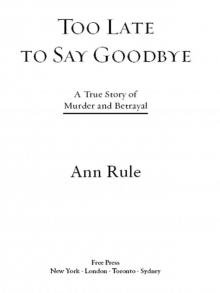 Too Late to Say Goodbye: A True Story of Murder and Betrayal
Too Late to Say Goodbye: A True Story of Murder and Betrayal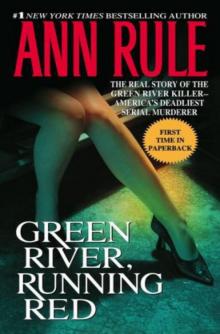 Green River, Running Red
Green River, Running Red Bitter Harvest
Bitter Harvest Dead by Sunset: Perfect Husband, Perfect Killer?
Dead by Sunset: Perfect Husband, Perfect Killer?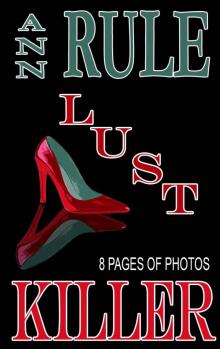 Lust Killer
Lust Killer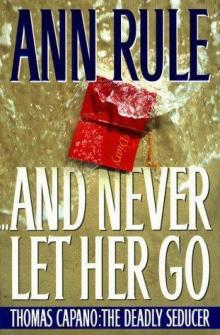 And Never Let Her Go: Thomas Capano: The Deadly Seducer
And Never Let Her Go: Thomas Capano: The Deadly Seducer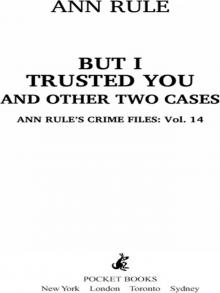 But I Trusted You and Other True Cases
But I Trusted You and Other True Cases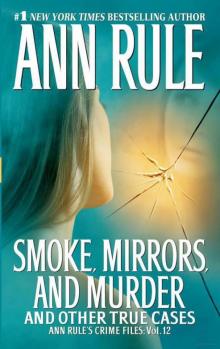 Smoke, Mirrors, and Murder and Other True Cases
Smoke, Mirrors, and Murder and Other True Cases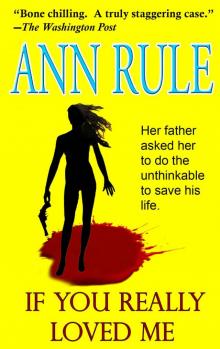 If You Really Loved Me
If You Really Loved Me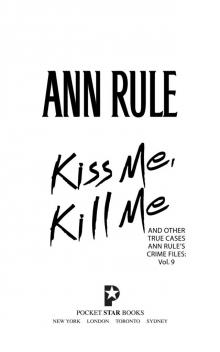 Kiss Me, Kill Me and Other True Cases
Kiss Me, Kill Me and Other True Cases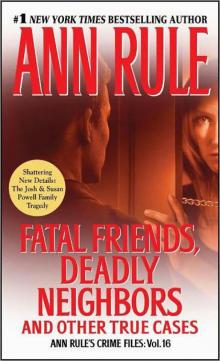 Fatal Friends, Deadly Neighbors and Other True Cases
Fatal Friends, Deadly Neighbors and Other True Cases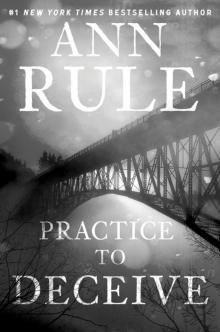 Practice to Deceive
Practice to Deceive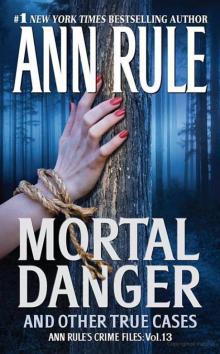 Mortal Danger and Other True Cases
Mortal Danger and Other True Cases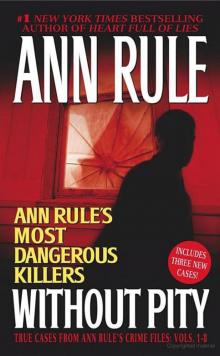 Without Pity: Ann Rule's Most Dangerous Killers
Without Pity: Ann Rule's Most Dangerous Killers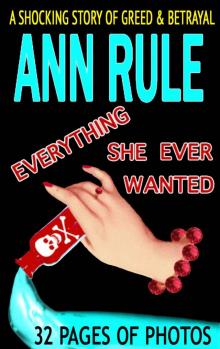 Everything She Ever Wanted
Everything She Ever Wanted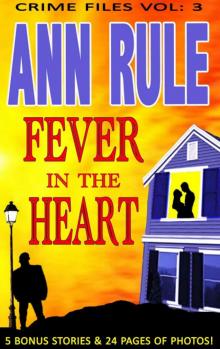 A Fever in the Heart and Other True Cases
A Fever in the Heart and Other True Cases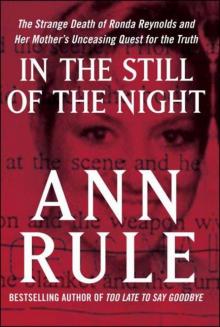 In the Still of the Night
In the Still of the Night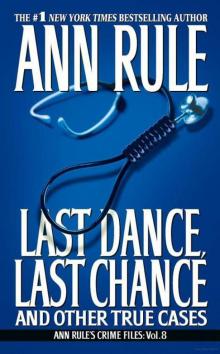 LAST DANCE, LAST CHANCE - and Other True Cases
LAST DANCE, LAST CHANCE - and Other True Cases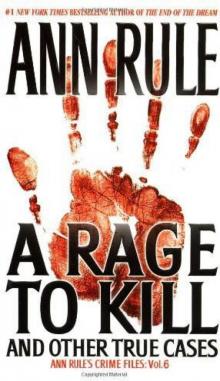 A Rage to Kill
A Rage to Kill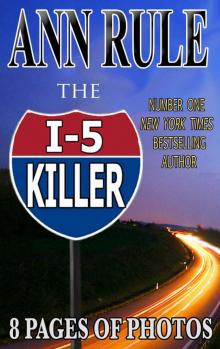 The I-5 Killer
The I-5 Killer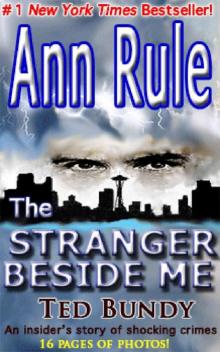 The Stranger Beside Me
The Stranger Beside Me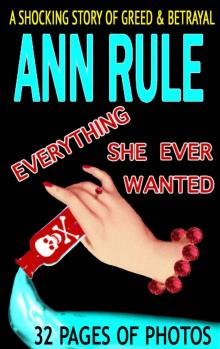 Everything She Ever Wanted: A True Story of Obsessive Love, Murder, and Betrayal
Everything She Ever Wanted: A True Story of Obsessive Love, Murder, and Betrayal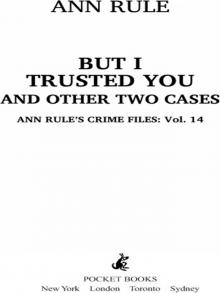 But I Trusted You
But I Trusted You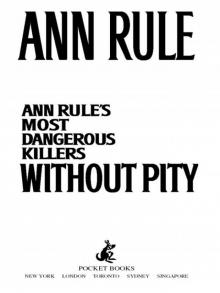 Without Pity
Without Pity Kiss Me, Kill Me
Kiss Me, Kill Me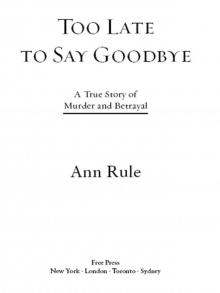 Too Late to Say Goodbye
Too Late to Say Goodbye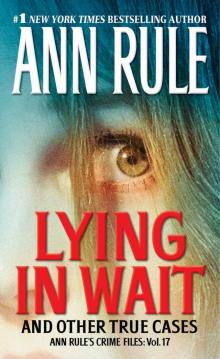 Lying in Wait
Lying in Wait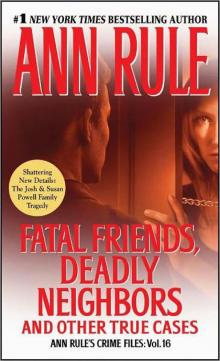 Fatal Friends, Deadly Neighbors
Fatal Friends, Deadly Neighbors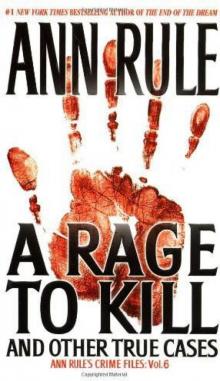 A Rage to Kill: And Other True Cases
A Rage to Kill: And Other True Cases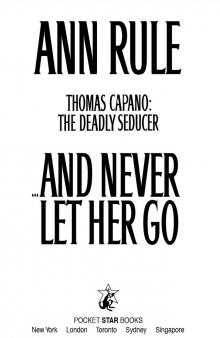 And Never Let Her Go
And Never Let Her Go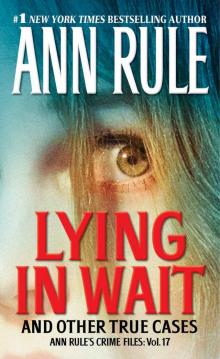 Lying in Wait Ann Rule's Crime Files Vol.17
Lying in Wait Ann Rule's Crime Files Vol.17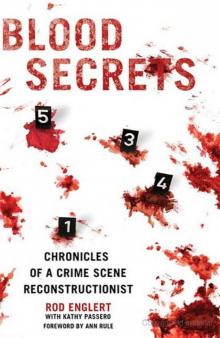 Blood Secrets: Chronicles of a Crime Scene Reconstructionist
Blood Secrets: Chronicles of a Crime Scene Reconstructionist No Regrets
No Regrets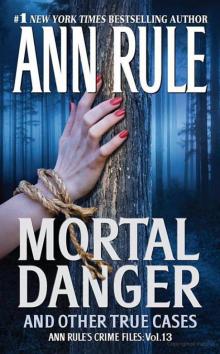 Mortal Danger
Mortal Danger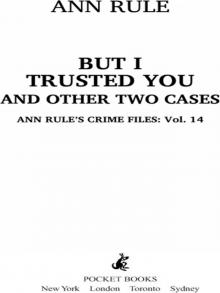 But I Trusted You: Ann Rule's Crime Files #14
But I Trusted You: Ann Rule's Crime Files #14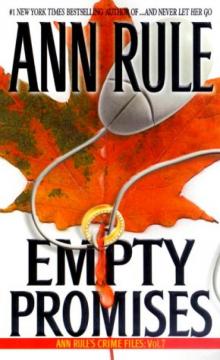 Empty Promises
Empty Promises Dead by Sunset
Dead by Sunset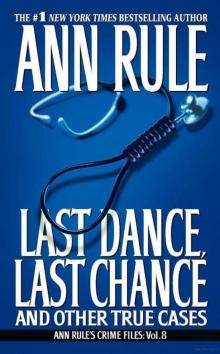 Last Dance, Last Chance
Last Dance, Last Chance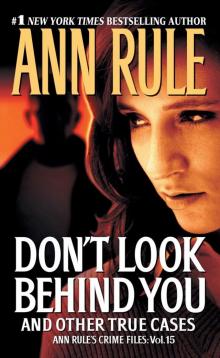 Don't Look Behind You
Don't Look Behind You